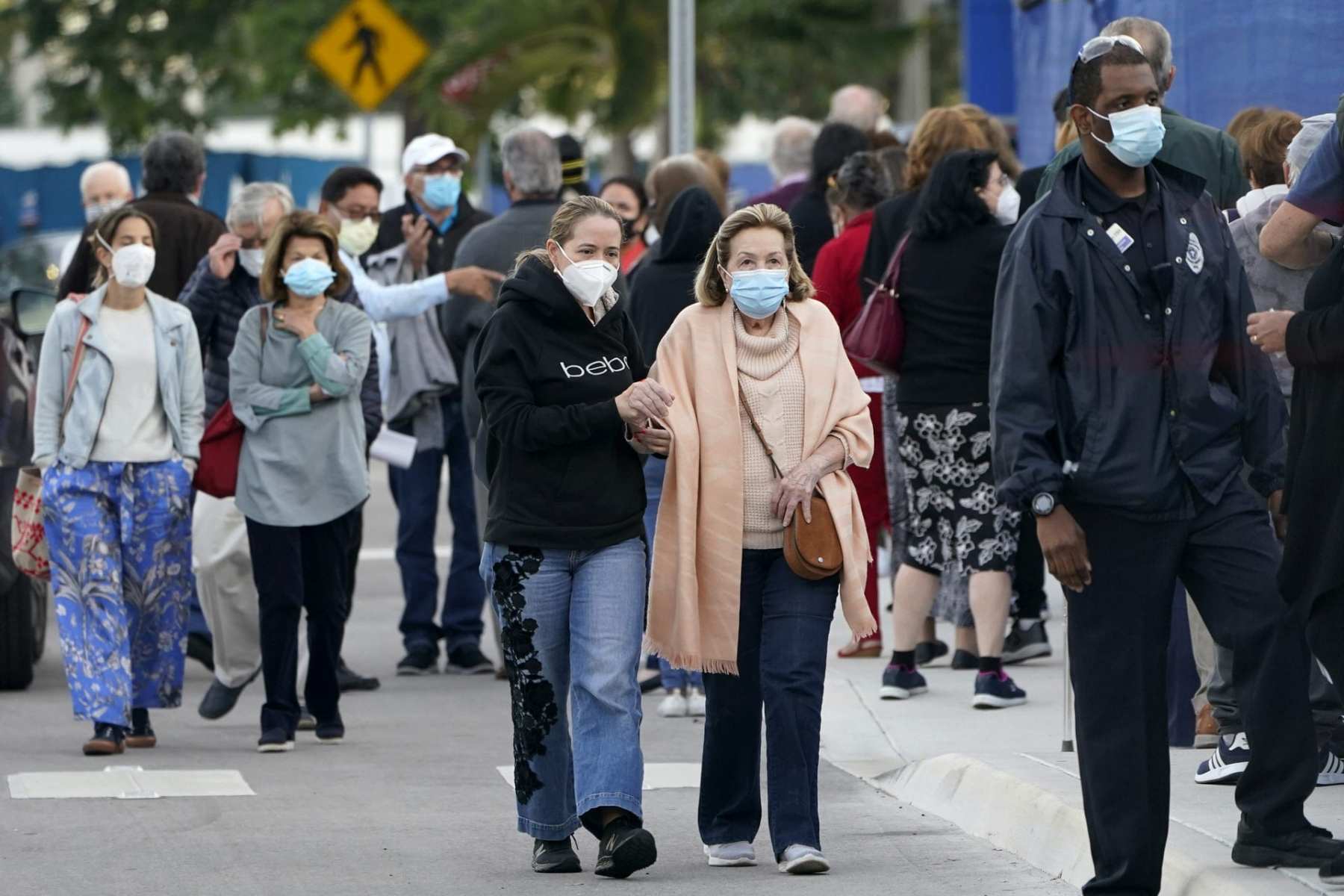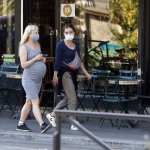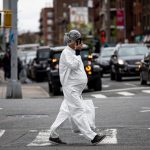The Trump administration made major updates to its coronavirus vaccine guidelines Tuesday, urging states to offer the shots to adults 65 and older — a group predominantly made up of women — as well as those with medical conditions that could increase their risk of COVID-19 complications. The new guidelines could open up immunizations to women who were otherwise not yet eligible.
The change, announced at a media briefing by the Department of Health and Human Services, could also expand early vaccine eligibility for pregnant people, who are at heightened risk of COVID-19.
The Centers for Disease Control and Prevention had initially encouraged states to prioritize health care workers and nursing home residents first, followed by frontline workers and people 75 and older. In the third tier, they urged states to vaccinate essential workers along with adults 65 and older and people with pre-existing medical conditions. Those recommendations were part of an effort to target people most vulnerable to the coronavirus, both because of medical risk and ability to avoid exposure.
States have used those guidelines to craft their own varying vaccine distribution plans. Even now, they are not required to follow the updated guidance. Currently, most states are still in the first phase of immunization, and only starting to open up COVID-19 vaccines to other groups of people.
Tuesday’s guidance is meant to speed up a process that has lagged well behind the brisk vaccination pace the Trump administration had initially promised, freeing up vaccines to be used quickly instead of adhering to stricter groupings. The administration also intends to create more vaccine distribution sites, including more pharmacies, community health centers and mass vaccination sites. So far, about 9.27 million doses have been administered — just over a third of all distributed vaccines, per data compiled by Bloomberg News.
But it’s unclear if or how much the changes will meaningfully speed up vaccination, especially if the government doesn’t also tackle other logistical hurdles such as funding for vaccine outreach and addressing misinformation that has fueled vaccine skepticism. HHS did not address these issues in its media briefing, though experts have identified them as critical barriers to vaccination.
The nation’s crisis has entered its worst phase yet, with more than 4,000 people dying daily as new variants of the virus threaten to spread to the United States.
From a gender standpoint, the implications of changing the vaccination guidelines are complex but significant. The initial recommendations made women — and particularly Black and Latina women — prime candidates for earlier vaccine eligibility. Women make up large amount of health care workers, but also teachers, child care workers, and people who work in grocery and retail, which are higher-exposure professions. Generally, the frontline worker population skews Black and Latina, groups who have, because of deeper racial inequalities, been more likely to live in communities with higher coronavirus rates.
Per data from the U.S. Census Bureau, there are 84 men per 100 women in the 65 to 84 year old demographic. In the group of Americans 85 and older, there are 56 men per 100 women.
Older Americans are in general far more likely to die if they contract COVID-19.
With regard to pre-existing conditions, it’s a more complicated picture. Because scientific consensus is still developing, it’s not clear which medical conditions heighten the risk of COVID-19. The CDC lists a few conditions that are likely risk factors. Those include obesity, heart conditions, Type 2 diabetes, being a smoker, COPD and pregnancy.
The first four conditions are typically more common in men, but both COPD and pregnancy are more likely to impact women.
Pregnancy in particular has posed a thorny question in the national vaccination campaign. Neither of the available vaccines was tested in pregnant people during this summer’s clinical trials, though a handful of women participants did become pregnant over that time period.
But given the heightened risk coronavirus poses to pregnant people, medical experts — including the American College of Obstetricians and Gynecologists and the Society for Maternal-Fetal Medicine — have endorsed making the vaccine available to pregnant people, who can discuss with their medical providers whether or not to take it.
If states follow the new recommendations, “Pregnant women now should be able, just by virtue of being pregnant, to come to a vaccination location … and get vaccinated if they want to,” said Ruth Faden, a bioethicist at Johns Hopkins University.
But, Faden noted, simply expanding eligibility isn’t enough. Vaccinations have lagged in large part because of other structural challenges — people not being able to go to the place vaccines are available, because of limitations on where and when the shots are administered, because of challenges with transportation and child care, and because of skepticism among vulnerable groups about whether the vaccine is in fact safe.
All of those are issues the government would have to address as well, she said.
“I’m glad to see the age lowered, but it’s not going to mean a lot — whether you lower the age or move to essential workers,” Faden said. “If vaccines are not made available where people are at many hours of the day and seven days a week, that’s also going to be a problem. If some woman with three kids has to take two buses to get a vaccine, that’s not meaningful access.”






